Basic Math Skills Extra Challenge Numbers Worksheets for Ages 5-8
8 filtered results
-
From - To
Unlock your child’s potential with our "Basic Math Skills Extra Challenge Numbers Worksheets for Ages 5-8". Designed to enhance number recognition and math proficiency, these engaging worksheets cater to various learning styles, offering a fun, interactive approach. Perfect for young learners, our customized resources gently increase in difficulty, fostering critical thinking and problem-solving abilities. With vibrant illustrations and thoughtfully structured exercises, children will build a solid foundation in mathematics. Ideal for both classroom and home learning, these worksheets provide valuable practice, ensuring kids get the extra challenge they need to excel. Visit [Website] to explore our collection today!
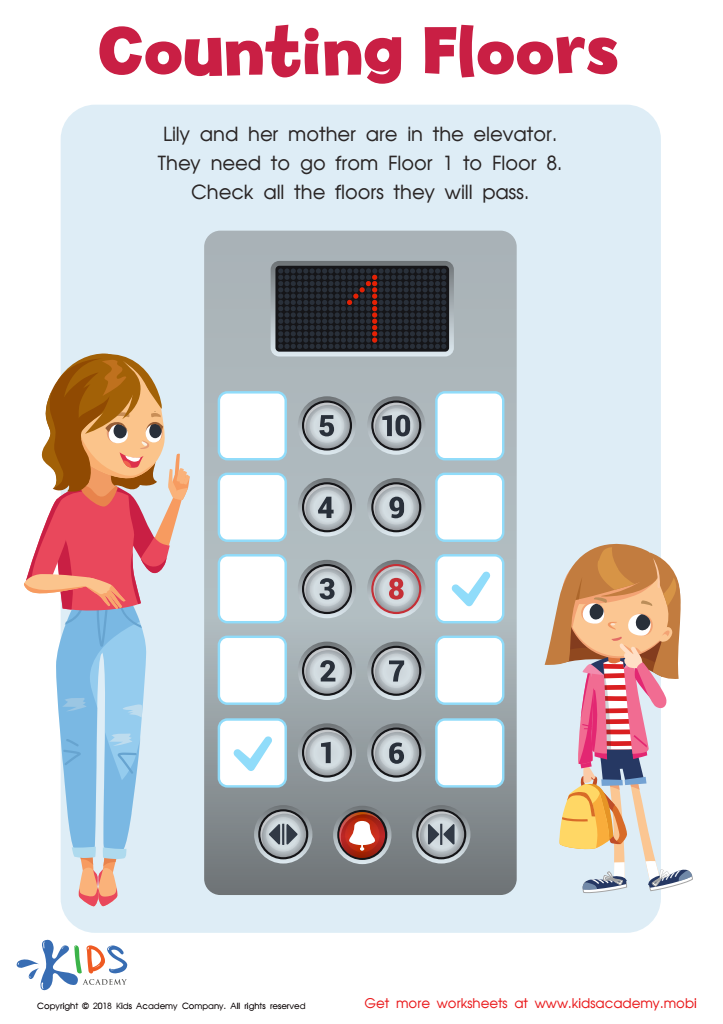

Counting Floors Worksheet
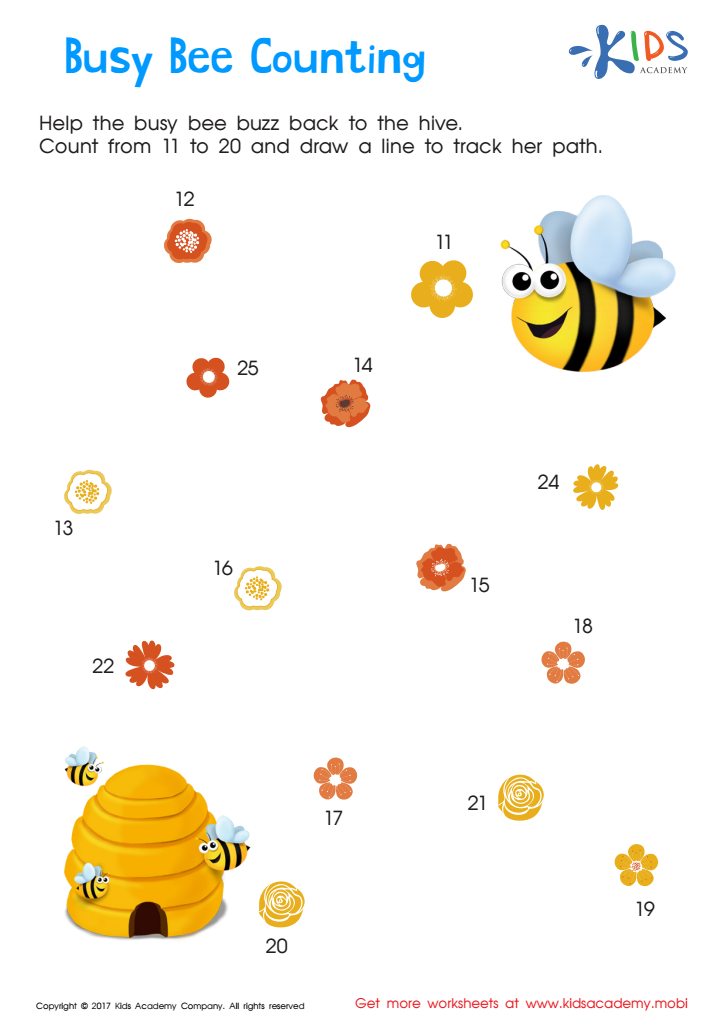

Ordering 11–20: Busy Bee Counting Worksheet
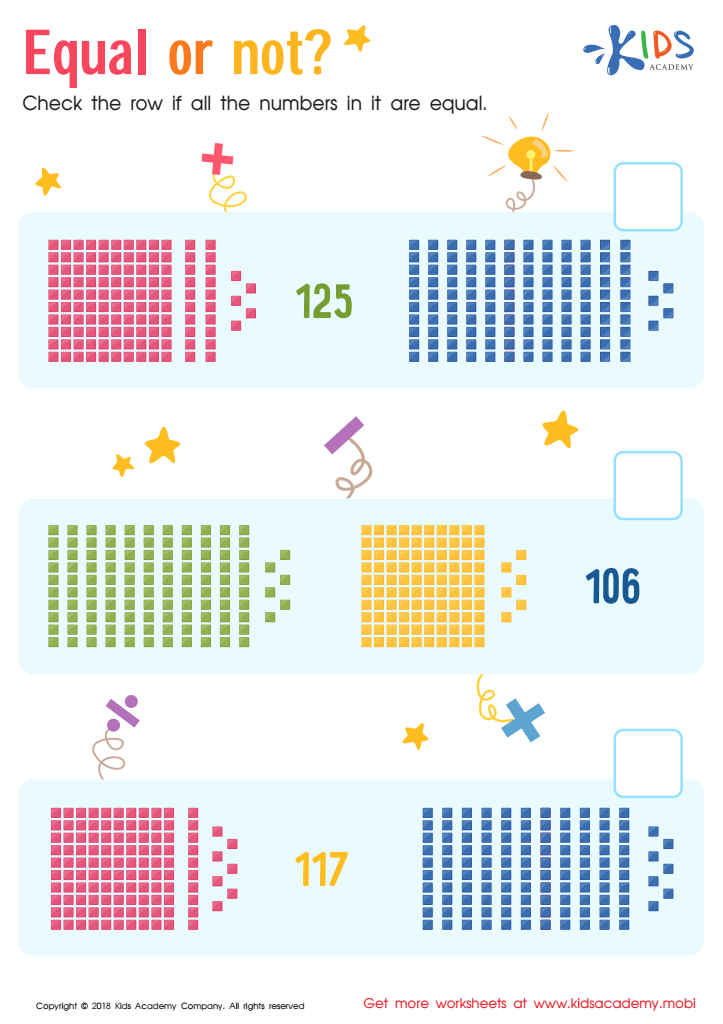

Equal or not Worksheet
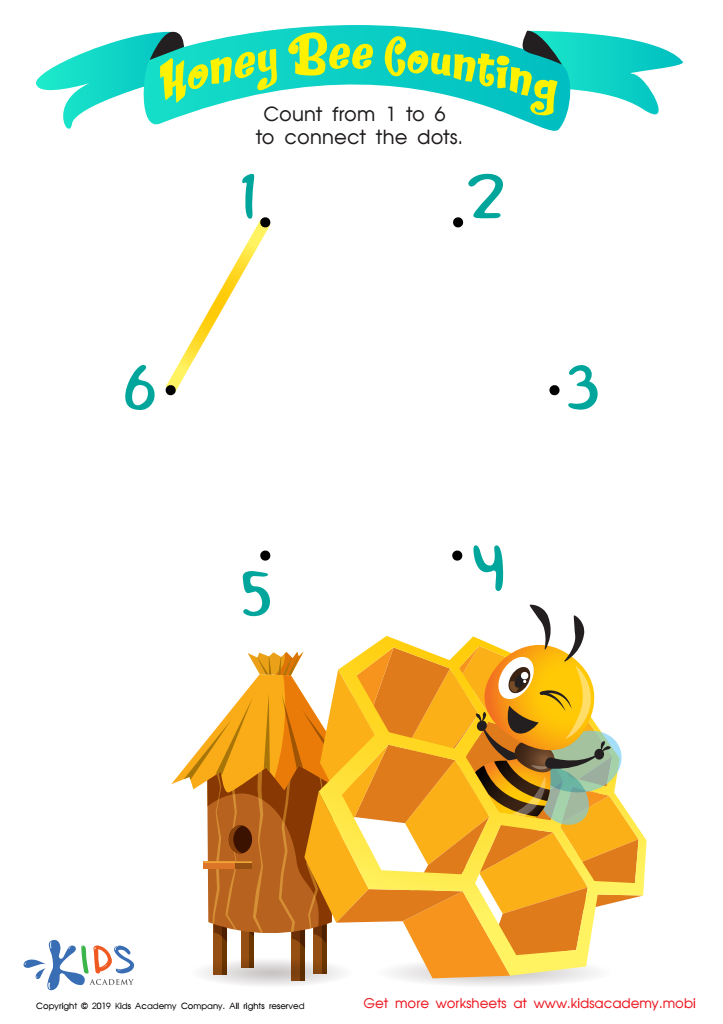

Honey Bee Counting Worksheet
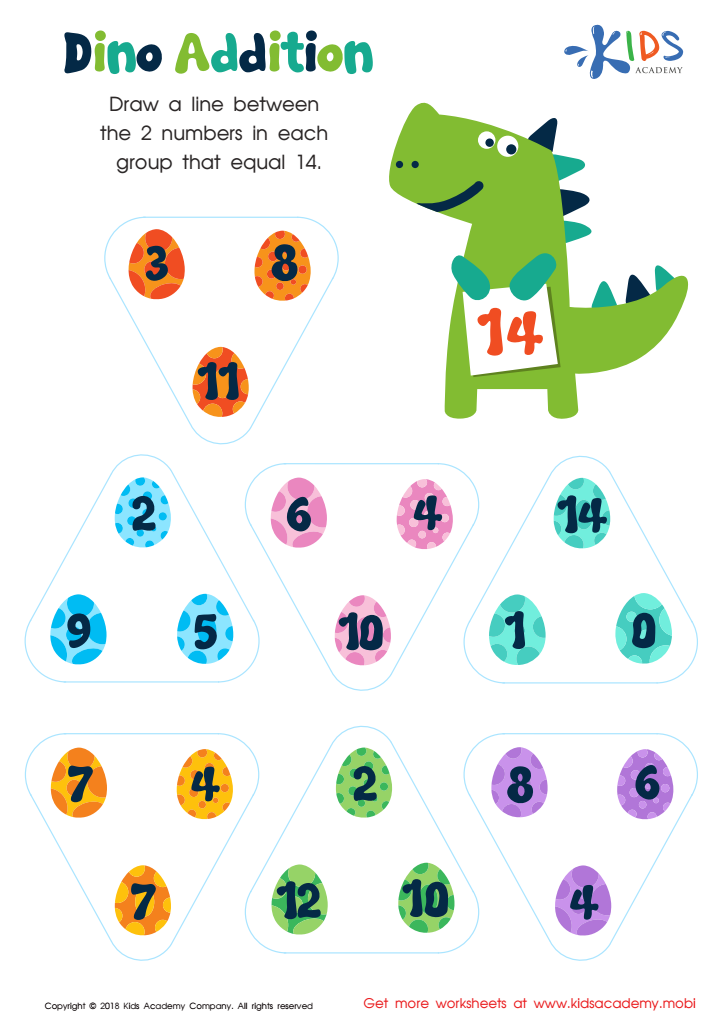

Dino Addition Worksheet
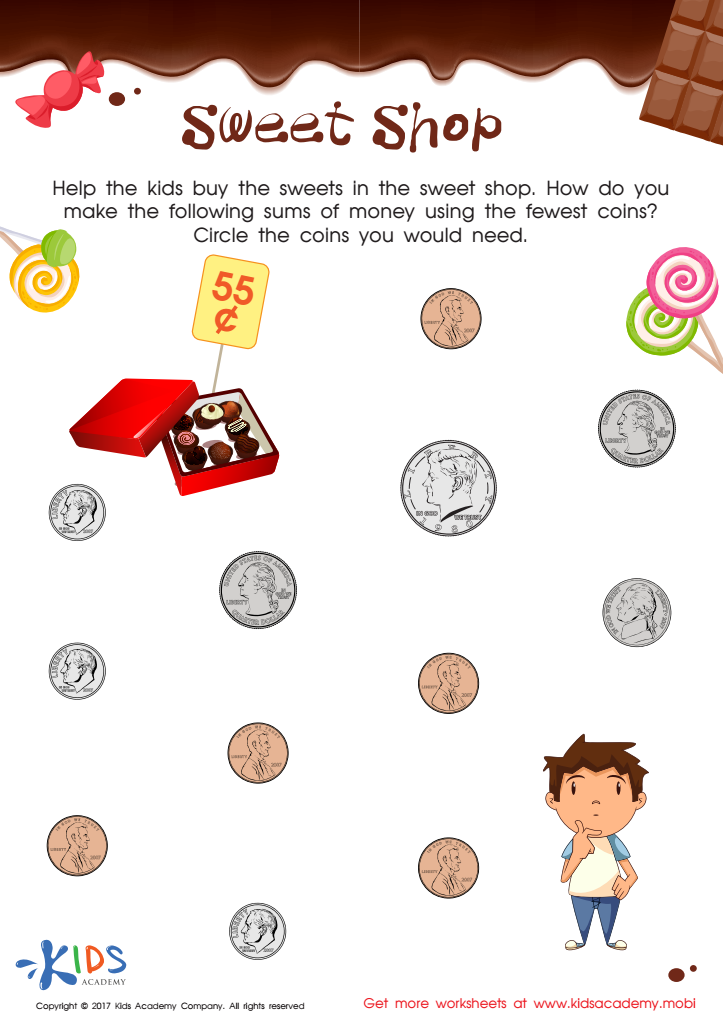

Sweet Shop – Counting Coins Worksheet
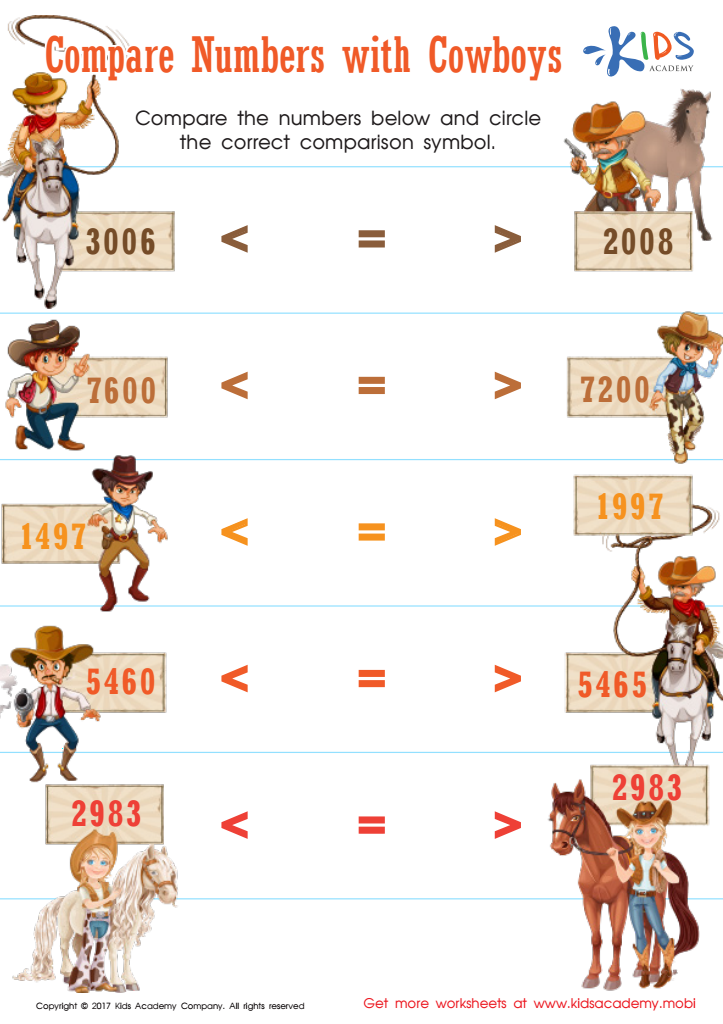

Compare Numbers Worksheet for 3rd Grade
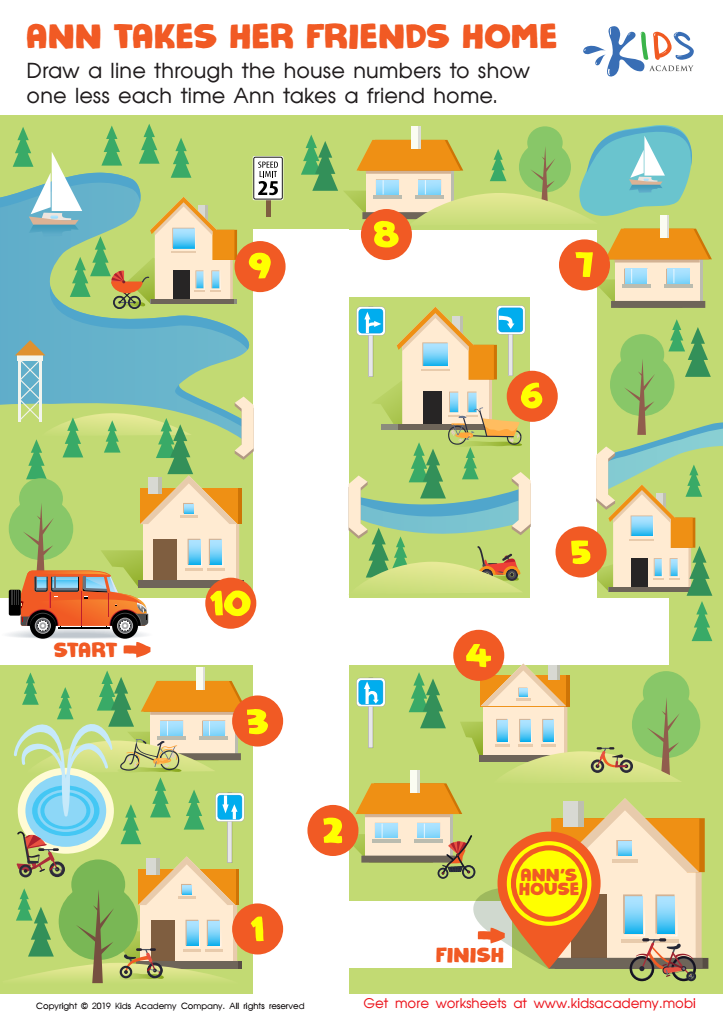

Ann Takes her Friends Home Worksheet
Parents and teachers should care about Basic Math Skills Extra Challenge Numbers for ages 5-8 because strong foundational math skills are critical for children's overall academic success and future comprehension of more complex concepts. Early exposure to number challenges promotes cognitive development by fostering problem-solving skills, logical reasoning, and mental flexibility. These challenges create an engaging and enjoyable learning experience that motivates children and keeps them interested in math.
Mastering basic math concepts at an early age can boost a child's confidence and reduce math anxiety, which is crucial for their positive attitude towards learning. Extra challenges can also accommodate various learning paces, ensuring that advanced learners remain stimulated while others receive the added practice they need.
Mathematical proficiency in early childhood is linked with better performance in other academic subjects, and often translates to better scores in standardized tests throughout their school years. Encouraging children's curiosity and enjoyment of math while they are young sets the stage for their continued interest and perseverance in STEM (Science, Technology, Engineering, and Mathematics) areas. Moreover, parents' and teachers' involvement in these activities signals to children that learning math is important and valued, fostering a supportive learning environment and a growth mindset.
 Assign to My Students
Assign to My Students




















